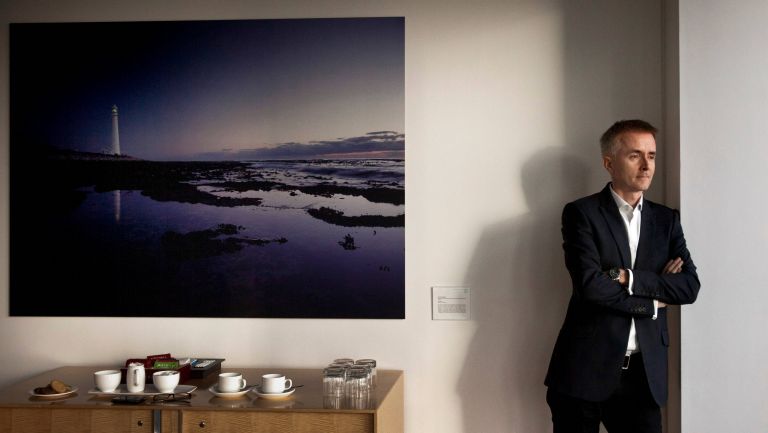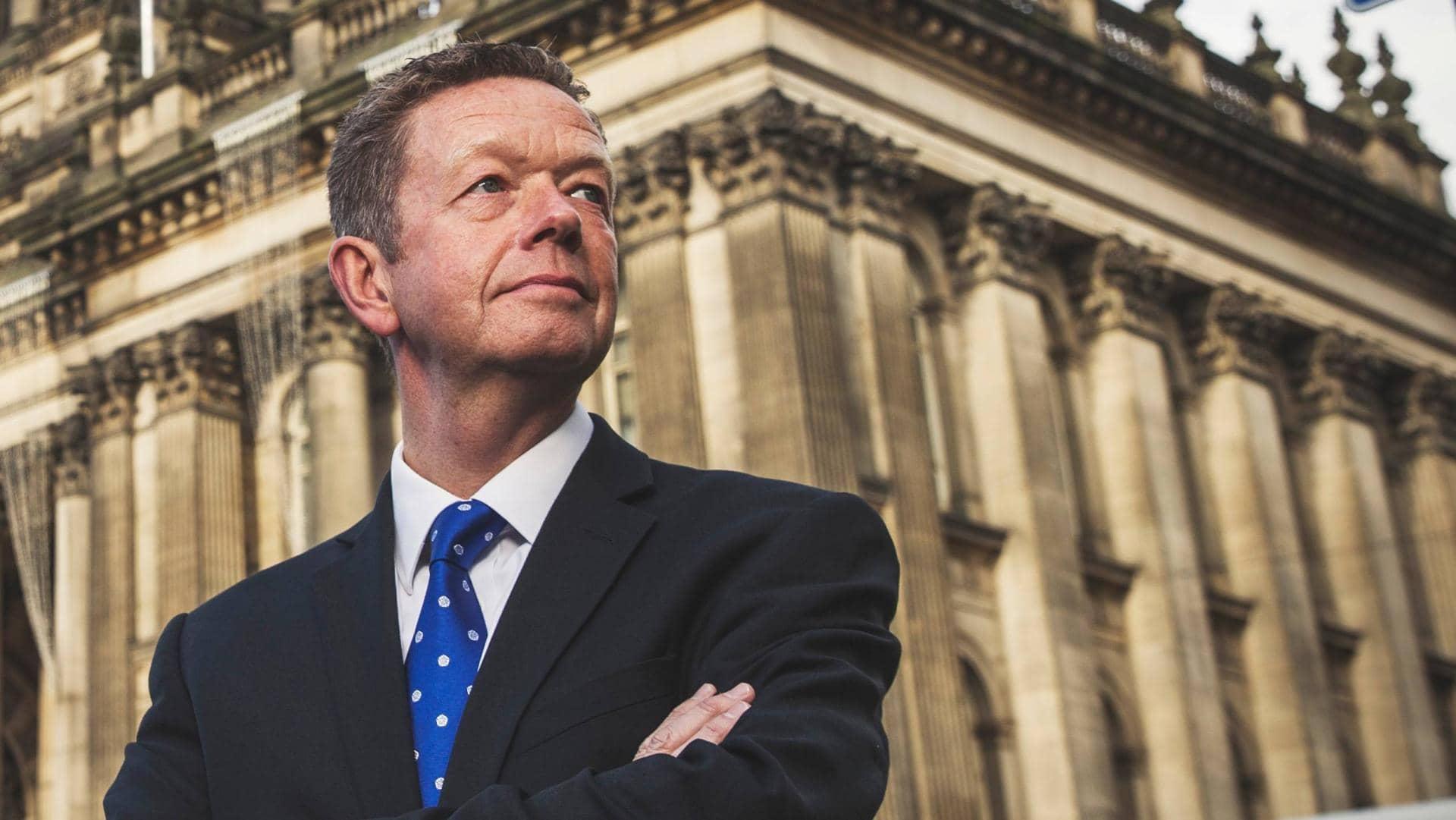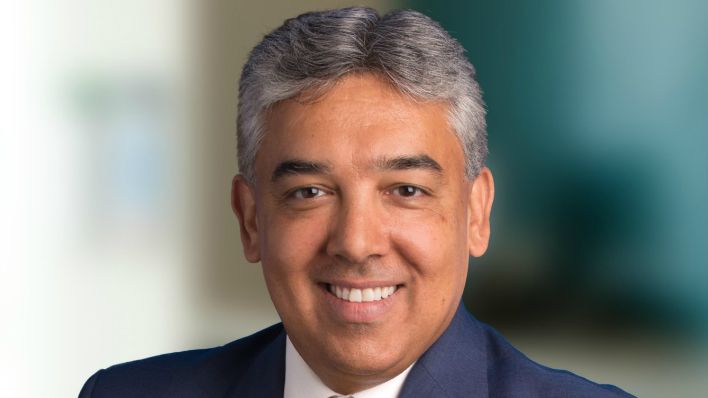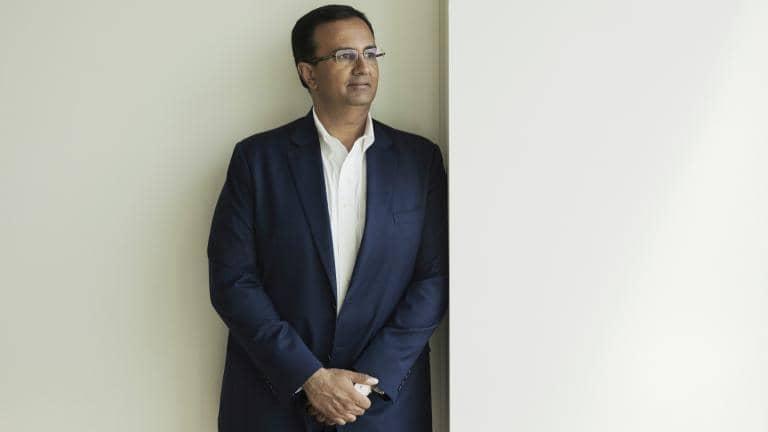
Insights: Jonathan Smart
As Head of Ways of Working at Barclays, Jonathan Smart finds ways to help the bank achieve “better, faster, safer, happier” outcomes

Barnsley-born Tony Walsh runs the corporate team across the north of England for Barclays. He is responsible for 150 people across 10 locations – from the major cities of Manchester and Leeds to more rural locations in Cumbria and North Yorkshire – banking businesses from all sectors. He tells us how the ‘Northern Powerhouse’ can work for the region’s 15 million people.
When I ask customers what ‘Northern Powerhouse’ means, I get a lot of different answers. It’s a strap-line that everyone’s heard of, but for many people it might not be clear what’s behind it. The concept is that if the major towns and cities of the north of England work together for the good of the region, they can compete on any stage.
The fact that it means different things to different people is fine – I don’t think we should be worried that there’s no one-page answer to the question – but what the concept does need is some traction, to advance its many strands. For a lot of people, Northern Powerhouse means transport. That could be HS2, or HS3 going from east to west across the north of England. Many people would say the key concept is skills.
Primary education across the North is good, but in secondary education the region woefully underperforms in terms of attainment, so the need to improve our skills base is a genuine issue. Others would say it’s not about transport and skills, but it’s about digital, or it’s about energy, or it’s about any number of areas. So, in the end ‘Northern Powerhouse’ as a concept carries all these different strands and pulling all of that together is a huge task.
The next stage of that task is to get away from the talk and get on with some of these sub-projects so that the 15 million people in the north of England, as well as the region’s businesses, can start to feel something tangible and attach it to the concept, rather than saying: “You know, I’ve heard of this Northern Powerhouse but it doesn’t really mean anything to me.”
Client outcomes
One in four businesses in the North bank with us, so we have a big role to play. We’re regularly running thought leadership events, industry events and conferences. On any given day, I might be at a retail industry event in the North West, then with Yorkshire clients in a joint meeting with the CBI. We’re forever getting our clients together and asking: “What do you want to be the outcomes from Northern Powerhouse?” and then working out how we can help.
Barclays also employs over 12,000 people in the region, so it’s an area that’s incredibly important to us, and one that we’re incredibly important to. We’ve signed a memorandum of understanding with the government on the work they’ve been doing on Northern Powerhouse, and we’re founding members of a business-led Northern Powerhouse partnership, where major private businesses across the North have got together, along with civic leaders, to say: “How can we help with thought leadership to bring these strands into reality?”
We’ve also announced an exciting partnership with Manchester Business School looking at how we can pull things together around the transport and skills agendas.
There’s investment required around road and rail, but don’t forget we’ve got great ports and coastlines here – we’re seeing people thinking more widely again about linking the northern economy to the outside through the ports and the seas.
Innovate and unlock
What we’ve seen is innovation around high-growth and tech businesses. The region’s major towns and cities are starting to form hubs – looking around for USPs specific to the area. To take one example among many, if you look at Sheffield: that city has been famous for steel and manufacturing. The Advanced Manufacturing Park, which is just outside the city, has a tremendous amount of innovation looking at the new manufacturing techniques we can expect looking forward to 2050. They work with big brands like Boeing and Rolls-Royce, reinventing what manufacturing is going to look like.
Major towns are doing relatively well, but any true ‘Northern Powerhouse’ needs to take in the whole region. The north of England also has smaller towns and rural areas, and we cover all of this. Some of those areas are – in GDP and growth terms – the weaker areas in the UK. But that’s where we can work both with companies and our colleagues on the retail side. Our staff will go into schools and share their experience of interview skills and CV writing to help young people get into employment and begin their working lives. That’s a key thing to unlock in many of the towns that are regarded as “left behind” and it’s something we can really help with.
A lot of clients tell us that bringing in quality people who are hungry to make a difference is a problem for their business, but as someone who joined Barclays in Barnsley as an apprentice 34 years ago, I feel I was lucky. It wasn’t hard for me to find that first job. I suspect it’s more of a challenge now if you’re wanting to go to work at 16 or 18, and we at Barclays have a role to play – along with other organisations – to help people transition into that. It helps the individuals, it helps the businesses and it helps the region. And that’s where, reaching out to all these communities across the north of England, we can really make a difference.

As Head of Ways of Working at Barclays, Jonathan Smart finds ways to help the bank achieve “better, faster, safer, happier” outcomes

Barclays Global Head of Trade and Working Capital, Baihas Baghdadi understands the importance of exports in driving UK economic and business growth

Dambisa Moyo is a Zambian-born economist and author who has been a Non-Executive Director with Barclays since 2010

As Head of Omnichannel and Customer Experience at Barclays, Raheel Ahmed heads a team that deals with two billion ‘customer interactions’ every year
